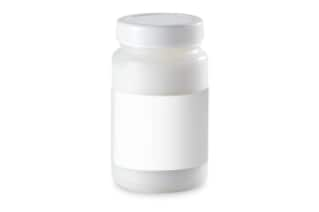
|
Separation Mode |
GPC/GFC/SEC |
|
Detection Method |
UV, RI/ELSD |
|
Formulation |
Solid |
|
Storage Condition |
Room Temperature |
|
System Type |
LC |
|
Shelf Life |
36 Months |
|
Shipping Condition |
Ambient |
|
Tolerance |
10% (Mp) |
|
Mass |
5 g |
|
Type |
Calibration |
|
UNSPSC |
41116107 |
|
Application |
Gel Permeation |
|
Product Type |
Standards |
|
Units per Package |
1 pk |

Polystyrene Standard 430,000
Polystyrene Standard 430,000 is a high-purity polystyrene standard, purpose-built for calibrating and validating HPLC systems. With a molecular weight of 430,000 Daltons and available in various particle sizes, this standard provides accurate and precise measurements, ensuring the quality of your HPLC analyses.
Calibration and validation are essential steps in maintaining the accuracy of HPLC systems. Polystyrene Standard 430,000 serves as a dependable reference point, allowing you to calibrate your system with confidence. By characterizing or confirming the molecular weight of polymers, it guarantees reliable results and empowers you to advance your research and development endeavors.
Enjoy the benefits of accurate and precise calibration with Polystyrene Standard 430,000. By facilitating consistent and reliable HPLC measurements, it upholds the integrity of your analytical processes. Incorporating this standard into your existing HPLC methods is a breeze, streamlining your workflow and eliminating any potential complexities, ensuring your lab equipment works better. Columns like the ACQUITY UPLC BEH C18 Column, 130Å, 1.7 µm, 2.1 mm X 50 mm, 1/pk are bolstered by the quality of this standard.
Ordering Polystyrene Standard 430,000 is a decision that pays dividends in your chromatography endeavors. Comprised of high-purity polystyrene free from contaminants, this standard ensures optimal performance in your calibrations. Moreover, the range of available particle sizes empowers you to select the one best suited for your specific applications, granting you maximum flexibility.
Compatibility with a diverse range of HPLC systems further enhances its appeal. Seamlessly integrating into your existing equipment, Polystyrene Standard 430,000 eliminates the need for additional modifications, saving you time and resources. Its user-friendly nature ensures a straightforward experience, catering to both novices and seasoned chromatographers alike.
Polystyrene Standard 430,000 is the valuable calibration tool your laboratory needs. Invest in this high-quality standard today and witness the difference it makes in your HPLC processes. Elevate your analyses, ensure precise measurements, and elevate the standard of excellence in your research and development. Place your order now and unlock the full potential of your HPLC systems.
What is polystyrene?
Polystyrene is a synthetic polymer made from the monomer styrene. It is a widely used thermoplastic material known for its versatility, rigidity, and transparency. Polystyrene is commonly used in various applications, including packaging materials, disposable cutlery, insulation, CD/DVD cases, and laboratory consumables like petri dishes and test tubes. Additionally, expanded polystyrene (EPS) is used for foam packaging, insulation, and in the construction industry for lightweight concrete blocks.